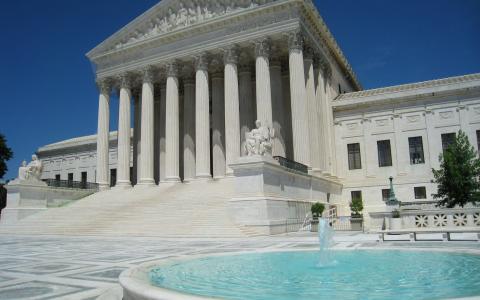
(Reuters) - The U.S. Supreme Court on Monday agreed to examine how difficult it should be for financial whistleblowers to win retaliation lawsuits against their employers as the justices took up a long-running case involving Switzerland's UBS Group AG.
The justices will hear an appeal by Trevor Murray, a former UBS bond strategist, of a lower court's decision to throw out his 2021 lawsuit that accused the company of unlawfully firing him for refusing to publish misleading research reports and complaining about being pressured to do so.
The appeal involves a technical but important issue - whether whistleblowers who sue their employers for retaliation under the federal Sarbanes-Oxley Act must prove that companies acted with "retaliatory intent."
The New York-based 2nd U.S. Circuit Court of Appeals last year decided that Murray was required to meet that bar and failed, creating a split with four other federal appeals courts. Those courts have said that defendants in Sarbanes-Oxley cases can raise the lack of intent as a defense, but that plaintiffs do not have to prove employers acted with intent.
A Supreme Court ruling in favor of UBS could significantly curtail financial whistleblower lawsuits because it is often difficult for plaintiffs to prove a defendant's motives.
Robert Herbst, a lawyer for Murray, said the 2nd Circuit decision ignored the text of the whistleblower law, adding that he looked forward to arguing the case before the Supreme Court.
A UBS spokesperson said, "We expect the court will uphold the 2nd Circuit's decision."
Murray, who worked in UBS's mortgage securitization unit, accused UBS officials of pressuring him to issue skewed and bullish research on commercial mortgage-backed securities in order to support the bank's trading and underwriting operations. He has said he was fired in 2012 about two months after complaining to supervisors and despite receiving excellent performance reviews.
UBS has denied wrongdoing and said Murray's termination was part of a cost-cutting campaign that eliminated thousands of jobs.
The Sarbanes-Oxley Act was adopted in 2002 and created enhanced accounting standards for publicly traded U.S. companies after a series of accounting scandals, along with new legal protections for employees who report illegal conduct.
The Supreme Court is due to hear the case in its next term, which begins in October.
(Reporting by Daniel Wiessner in Albany, New York; Editing by Will Dunham)
By Daniel Wiessner



